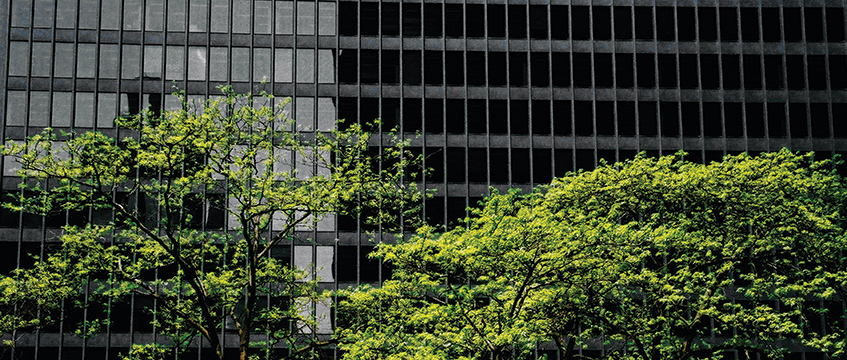The UK Green Building Council has called for a more iterative process for retrofitting, and warned that without action owners will be left vulnerable to stranded assets.
In new guidance aimed at reducing the gap in achieving net zero, UKGBC found that “significant opportunities” have been overlooked by office investors, owners and occupiers that are lacking a clear retrofit strategy.
These opportunities include “easy wins”, which the report defines as low-cost, low-disruption measures that lessen energy consumption, and vital “trigger points” in lease and maintenance cycles that would allow simpler, more efficient retrofits.
The report, Building the Case for Net Zero: Retrofitting Office Buildings, warns that commercial buildings are not being retrofitted at the pace or scale needed to meet impending tougher minimum energy efficiency standards or to hit the 59% reduction in energy consumption required in the office sector by 2050 outlined in UKGBC’s Net Zero Whole Life Carbon Roadmap.
With 77% of UK office stock rated EPC B or below, the majority still risks becoming unlettable by 2030 without action. This means the threat of a significant uptick in stranded assets has grown as market demand for sustainable space rises, UKGBC said.
To rectify this, the report, which was informed by data and insights from companies including Arup, ISG, British Land, Canary Wharf Group, Deloitte and Lloyds Banking Group, argues that the UK planning system needs to better encourage retrofitting in order for climate goals to be achieved.
It also calls for mandatory whole-life carbon reporting for major projects to facilitate evidence-based decision-making and provide greater transparency on the carbon savings of retrofits.
Data showed significant carbon reduction to be achievable, predominantly through deep retrofits, which often see a 60-65% cut in operational energy use and help to shift building systems away from fossil fuels.
However, substantial reductions in operational energy use can also be achieved through both optimisation and light retrofit, which provide a 26% and 15% reduction respectively. For investors and owners looking for the most cost- and carbon-effective measures, this would be a good first step, according to the report, with deep retrofits then able to be carried out more quickly and easily at a later date.
UKGBC also recommended calling out a lack of clarity from the government around MEES deadlines, which has caused hesitancy and delay among some investors and owners.
To address this issue, it argued that the industry needed a performance-based policy framework to encourage energy optimisation in a more effective way than existing EPC ratings, which only indicate potential performance. This will happen through continued collaboration, and the tracking and sharing of data between landlords and occupiers to improve and maintain performance levels, it said.
Yetunde Abdul, head of climate action at UKGBC, said: “Retrofitting our commercial buildings is critical to achieving our net-zero carbon goals. The scale of the challenge and the rate of decarbonisation needed means that ambitions need to be redoubled, without overlooking the easy wins. If all stakeholders are prepared to collaborate and be transparent, there is huge long-term environmental, social and economic value to be secured.”
To send feedback, e-mail chante.bohitige@eg.co.uk or tweet @bohitige or @EGPropertyNews











